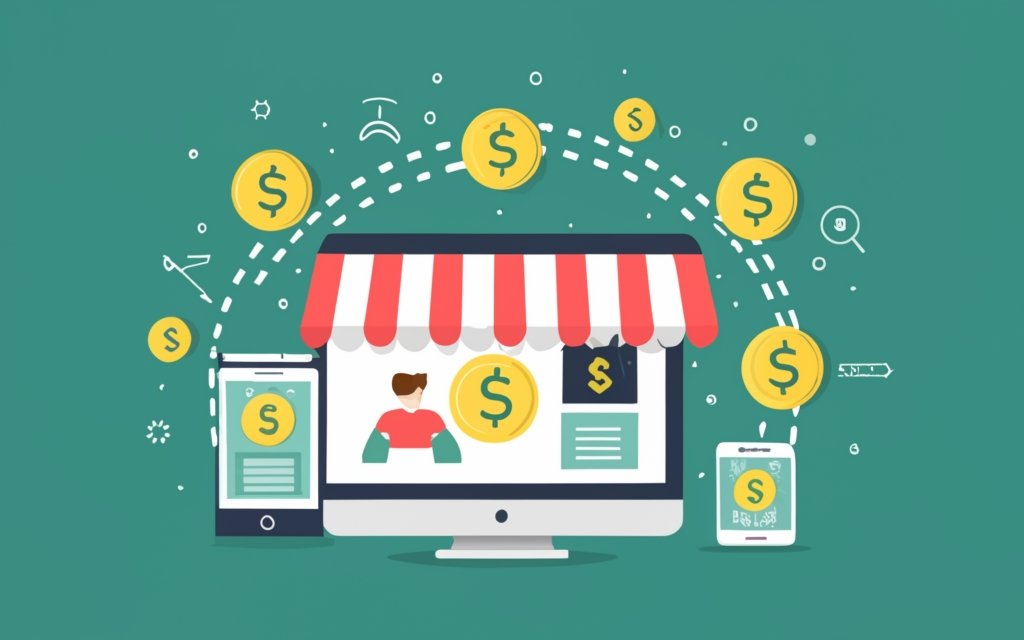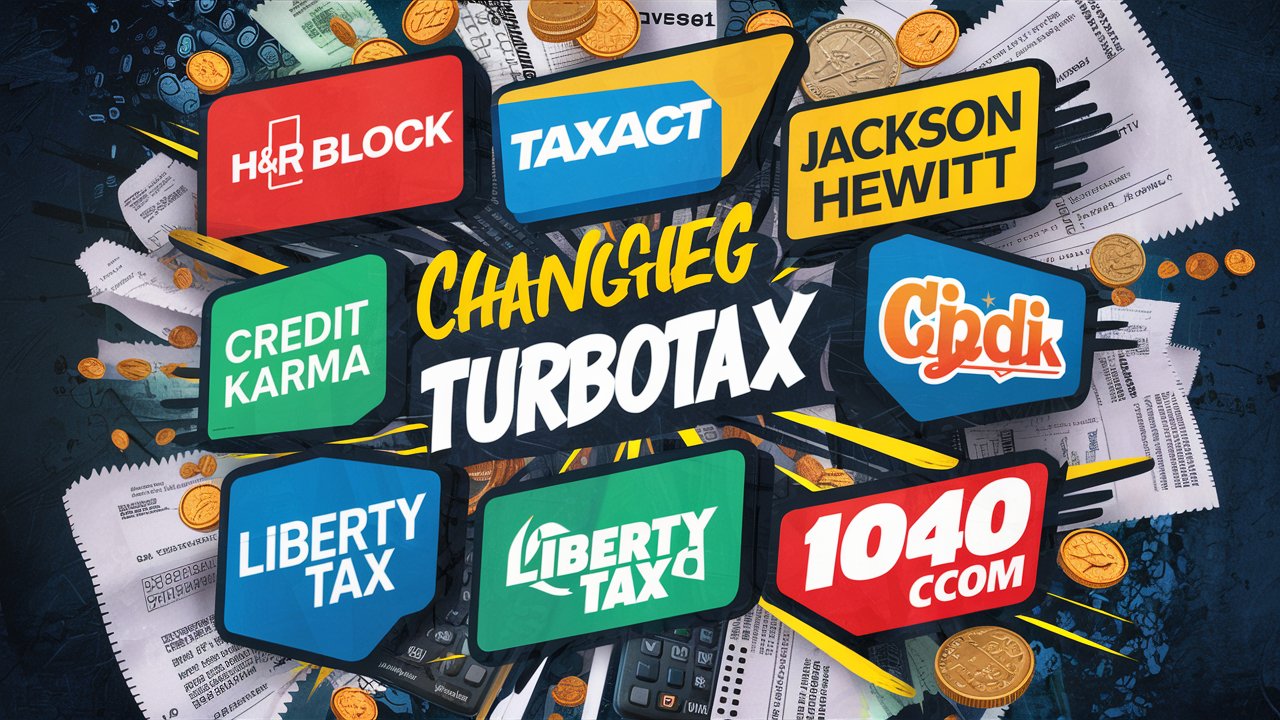Community Development Financial Institutions (CDFIs):
Stepping into the less explored terrain of financial opportunities, Community Development Financial Institutions (CDFIs) have been making a significant impact. These non-profit entities are fostering a remarkable alternative to payday loans. They actively assist underserved communities in accessing reasonable and fair financial services. It’s like painting beautiful economic landscapes where access to credit has remained unchartered territory for too long.
• The CDFIs are more than just another lending body, they serve dual resonating missions- profit with purpose.
• These institutions focus on building stronger societies by boosting housing initiatives, food security projects & neighborhood revitalization.
• CDFIs break down the complex walls of mainstream banking systems and act as advocates creating transparent and approachable dimensions in financing.
Imagine an economic ecosystem where every individual, irrespective of their income level or societal status, has equitable access to affordable loan schemes without falling into debt traps. That’s precisely what CDFIs aim to achieve! So if you’re looking for an effective alternative to payday loans these should be your go-to option with positivity combined with practicality like never before!
- Pros: Offer loans with low-interest rates and flexible terms.
- Cons: May have limited availability or specific eligibility requirements.
Credit Unions:
An intriguing alternative to traditional banking and payday loans that continues to gain widespread appeal is the Credit Union. These member-owned, non-profit financial cooperatives are emerging as a viable choice for people looking to break free from exorbitant interest rates typical of payday loan lenders. Credit Unions project an appealing flexibility about them that sets them apart in the vast arena of financial institutions.
Affordability and accessibility underscore the charm of credit unions. For one, they typically offer lower interest rates on loans and higher interest rates on savings accounts – a rare gem in today’s economy. Membership extends beyond mere account-holding; it grants you part-ownership status which births decision-making privileges at board meetings.
• Credit Unions demystify the infamous ‘financial institution bureaucracy’ by embracing an owner-friendly approach.
• Loans are readily available without being shackled by high-interest chains.
• Savings accelerate due to the appreciable interest percentages on deposit accounts.
In essence, opting for a credit union opens salient avenues towards more substantial savings while minimizing debt costs. Not only do you get authentic ownership status, but this pragmatic option also affords you control over your long-term financial journey – far from the uncertain wait-and-see game typical with payday loans.
- Pros: Offer loans with lower interest rates than traditional banks.
- Cons: May require membership or have limited branch locations.
Peer-to-peer (P2P) Lending Platforms:
Dive into the world of peer-to-peer (P2P) lending platforms, an alternative form of finance that is turning the traditional banking system on its head. With these platforms, you’re not borrowing from a faceless financial institution but rather, from individuals willing to lend their money for others.
Let’s take a brief detour to craft an understanding of how this marvel operates:
• Borrower’s Perspective: If you find yourself battling unfavorable loan terms or higher rates imposed by banks and payday services, P2P platforms can be your knight in shining armor. They offer competitive interest rates and more personalized borrowing experience.

• Lender’s Point of View: For investors seeking diversifiable investment avenues beyond conventional options such as bonds or stocks, P2P lending is close to hitting the jackpot! This relatively new option offers better returns than keeping your money idle in savings accounts.
The revolutionized structure certainly begs attention; it champions convenience plus lower costs while offering competitive returns for lenders. Considering these advantages, the transition towards adopting peer-to-peer lending as a preference doesn’t seem too far-fetched!
- Pros: Can offer competitive interest rates and flexible terms.
- Cons: May have higher fees than traditional loans and may not be available to all borrowers.
Paycheck Advance Loans:
Paycheck Advance Loans often serve as a financial lifeline for people who urgently need cash but are a few days or weeks away from their next payday. Unlike traditional bank loan procedures, these advances offer fast-processing times, easy approval and accessibility, which can be incredibly useful during emergencies. This flexibility may ease stress in the short term; however, they can lead to future financial complications if not carefully managed.
– Fast processing: Many services provide funds within hours of application.
– Easy approval: Typically, paycheck advance loans have fewer requirements compared to conventional loans.
– Accessibility: Most payday lenders operate 24/7 online or through mobile applications.
Nevertheless, it’s critical to understand that paycheck advance loans are only temporary solutions. They come with high interest rates – often exceeding credit card APRs – and short repayment periods which could lead into a cycle of debt if one is not prudent. Thus while convenient and necessary at times, the best course of action is always practicing savvy money management skills and creating an emergency fund for unexpected expenses.
Remember:
– High Interest Rates: Paycheck advance loans carry hefty fees charged on small amounts borrowed.
– Debt Cycle Danger: Difficulty repaying by the due date might trap borrowers into costly loan rollovers.
In conclusion, pay-check advance loans can be lifesavers when utilized responsibly. Armed with this knowledge you are better placed to make an informed decision about whether this option suits your current financial predicament or whether alternative options would serve you better.
- Pros: Can provide quick access to cash when you need it.
- Cons: Very high-interest rates and fees.
Pawn Shops:
Historically, pawn shops have been painted in a negative light, often associated with desperate situations. But let’s reconsider this perception; pawn shops are actually reliable fixtures on the financial services landscape that can serve as viable alternatives to payday loans.
These treasure troves function by providing loans in exchange for valuable items and offer an immediate solution to one’s cash flow problems without the headache of interest rates or credit checks.
Unlike traditional lending institutions, pawn shops offer undeniable flexibility. They provide instant loans against collateral – which could range from jewelry to electronics or antique collectibles. Here is why they’re becoming an increasingly favored avenue:
– No credit checks: Pawnbrokers don’t check your credit score because they have possession of your collateral.
– Interest rates: Unlike payday lenders, who charge exorbitant fees and interest rates ,pawn shops generally charge lower interests due to physical collateral involved.
– Direct proportionality: The amount you receive is directly proportional to the value of your asset.
So next time before considering a Payday loan, remember that a local Pawn shop could offer an efficient alternative that might just protect your financial future while solving immediate needs. Investing some time into understanding how these fascinating businesses work could help you navigate financial crunches with more ease and certainty.
- Pros: Can provide loans without a credit check.
- Cons: Very high-interest rates and fees.
Family and Friends:
Family and friends are your closest allies who can often come to your aid when facing financial turbulences. They may offer an alternative to getting a payday loan; a solution that comes without eye-watering interest rates, stringent repayments schedules or the risk of sinking further into debt. Yet, it’s crucial not to overlook the potential relational implications that such arrangement could instigate.
Indeed, lending money among families and circles of friends can be filled with uncomfortable dynamics. To avoid this:
– Clearly outline repayment plans from the onset.
– Maintain full transparency about why you need the loan.
– Henceforth, consider writing down agreements, just like formal lenders do.
This way you safeguard against misunderstandings which have potential to strain vital relationships. Leveraging on family or friends for financial help is less formal yet it calls for an equally cautious approach similar to traditional lending channels.
- Pros: No interest or fees.
- Cons: Can strain personal relationships if not handled carefully.
Employer-sponsored Financial Assistance Programs:
As an alternative to payday loans, a lesser-known yet more sustainable solution lies in Employer-sponsored Financial Assistance Programs. These programs enable employees to access short-term financial aid without incurring the debilitating debt associated with traditional loans.

Imagine a scenario where you can negotiate for a company advance or an employer-backed loan during unexpected moments of financial strain. No panic about interest rates spiraling out of control, and no stress over meeting the repayment deadline.
Employer-sponsored Financial Assistance Programs generally offer two types of assistance:
– Salary advances: A pre-payment from your employer that accounts for future worked hours.
– Small, short-term low-interest rate loans: These are monetary aids offered by employers specifically to cater their employee’s emergency needs and usually come with little or no interest.
What sets these alternatives apart is that repayment plans can be designed around your capacity — think deductions from payroll over multiple pay periods depending on what matches your cash flow capability.
Furthermore, such arrangements do not negatively impact credit scores unlike defaulting on high-cost payday loans might. This combination of flexibility, leniency and immediacy makes employer-sponsored initiatives a far safer and salutary way out of precarious predicaments.
- Pros: May offer loans or grants to employees.
- Cons: Not all employers offer these programs.
Government Assistance Programs:
Navigating through a financial crisis can be challenging. Often, in such situations, people turn to quick fixes like payday loans which may prove detrimental in the long run due to their high-interest rates. A lesser-known but much better alternative is government assistance programs – the unsung heroes of financial support.
Numerous federal and state programs are designed specifically to aid individuals and families going through financial hardship. For instance:
– Temporary Assistance for Needy Families (TANF).
– Supplemental Nutrition Assistance Program (SNAP).
– Low Income Home Energy Assistance Program (LIHEAP).
These diversified initiatives provide tangible resources from cash benefits, food help all the way to energy assistance at almost zero cost! Therefore, digging deeper into these hidden treasures not only spares you from potential debt traps but also brings forth valuable resources that many don’t know exist or underutilize.
Be strategic with your choices in tiding over tight spots financially. Instead of falling victim to brutal interest charges of payday loans, tap into these beneficial government networks! You will enjoy a more balanced solution without worsening your financial condition while getting back on track with life.
So next time you face some money issues remember: navigating economic hardships need not result in deep debts; there are legitimate aids available just waiting to be exploited.
- Pros: May offer loans or grants to low-income individuals.
- Cons: May have eligibility requirements and limited funding.
Earned Income Tax Credit (EITC):
In your quest for alternatives to payday loans, one of the options you might not have considered is the Earned Income Tax Credit (EITC). The EITC isn’t a loan at all; in fact, it’s quite the contrary. This tax credit is designed to help low-to-moderate income workers and families, a bonus from Uncle Sam that can provide some relief in challenging economic times.
The beauty of the EITC is that it’s refundable. This means if you qualify and claim the credit on your tax return and if it surpasses any taxes owed, you will get a refund of what remains. For example:
– You owe $800 in taxes.
– Your EITC amount comes up to $1000.
– You pay off your taxes with this credit.
– The remainder ($200) will be handed back to you as a refund.
Not only can this be an excellent alternative to risky payday loans but availing yourself of the EITC could mean more money in your pocket during tax season! Funnel these extra dollars into emergency savings or other necessities – a win-win!
- Pros: Can provide a tax refund of up to $6,935.
- Cons: Eligibility requirements and limited funding.
Credit Builder Loans:
Exploring Other Avenues: Credit Builder Loans
While payday loans are tempting short-term fixes with high-interest rates, credit builder loans (CBLs) emerge as a game-changing alternative. This unique loan type helps borrowers simultaneously improve their credit score and build savings. Unlike conventional loans where you get access to funds upfront, CBLs actually require you to ‘earn’ your loan by making payments towards it first.
Strategize Your Financial Growth with CBLs
Unlike conventional loans that focus on immediate borrowing, credit builder loans incentivize responsible financial behavior. The loan is deposited into a locked savings account, essentially making it ‘off-limits’. Regularly scheduled payments are made over time which are reported to the credit bureau – thereby improving your credit score.
Once the loan is paid in full, you gain access to these funds plus any interest accrued! So with disciplined repayment strategy, not only do you escape astronomical interest rates of payday loans but also work towards bigger long-term economic goals like homeownership and auto financing.
- Pros: Can help you build credit history.
- Cons: May have higher interest rates than traditional loans.
Secured Credit Cards:
Looking for alternatives to payday loans? Secured credit cards may just be the solution you’ve been waiting for. It’s a financial tool that not only can deliver immediate funds, but also provides an effective gateway towards enhancing your credit score over time.

Secured credit cards work differently from traditional ones as they require a refundable cash deposit upfront, which then becomes your credit line limit. This feature significantly minimizes the lender’s risk and allows the cardholder to transact globally and online just like with other regular cards – but now, having a poor or non-existent credit history will no longer hold you back!
Here are some compelling reasons to consider secured credit cards:
– Build or improve Credit: Your account activity is reported to three major bureaus, hence helping you establish or rebuild your damaged credibility.
– Flexibility: You set your own limit depending on the refundable deposit made.
– Global Reach: Not tied geographically, shop anywhere that accepts conventional counterparts.
So before considering going down the payday loan route with high fees and unsustainable interest rates, consider turning attention towards secured credit cards – it’s not only efficient but also a rewarding path of fiscal responsibility.
- Pros: Can help you build credit history.
- Cons: Require a security deposit.
Prepaid Debit Cards:
Prepaid debit cards offer an excellent alternative to high-interest payday loans, saving you from a cycle of debt. Unlike traditional debit cards linked to a checking account, prepaid cards only allow you to spend the funds loaded onto them. This not only helps with budgeting but also prevents overdraft fees typically associated with bank accounts.
Furthermore, these convenient financial tools are widely accepted for both online and in-store purchases, making them as versatile as they are secure. A variety of card options are available featuring different perks such as cash back rewards or no monthly fees:
• The Chase Liquid Card: Offers free direct deposit and free reloads at Chase ATMs and branches.
• American Express Serve: Provides benefits like free online bill pay, fraud protection and early direct deposit.
• Green Dot Prepaid Visa or Mastercard: Comes with cash-back rewards on everyday purchases.
Purchasing anything from groceries to airline tickets is made easy with these powerful plastic allies! Besides accessibility, prepaid debit cards provide the added advantage of being safer than carrying wads of cash around.
These unique qualities make prepaid debits an attractive choice for unbanked individuals as well as those seeking better money management tools. So think smart about your finances – consider a prepaid debit card instead of falling into the payday loan trap!
- Pros: No credit check required.
- Cons: May have fees and may not be accepted everywhere.
Budgeting and Saving:
Adopting a proactive approach towards planning for your financial future not only brings stability but also opens doors to multiple money-saving opportunities. Financial management starts with budgeting, which allows you to identify overspending areas and strategically plan your spending.
It’s surprising how much you might save by cutting off a few unnecessary subscriptions or cook at home more often rather than dining out. A few tweaks here and there can be the difference between amassing savings or opting for payday loans.
Creating an efficient saving plan goes hand-in-hand with budgeting. You may want to consider different savings options such as setting up an automatic transfer from your checking account to a dedicated savings account every month—a method many people find easy and efficient—or perhaps investing in bonds, mutual funds, or exchange-traded funds (ETFs) that yield significant returns over time.
– Establish clear financial goals.
– Keep track of income and expenditure.
– Identify unnecessary costs; cut them off.
– Automate transfers into a savings account.
– Explore various investment opportunities.
However, it’s important to research in-depth before committing your hard earned cash anywhere—financial advisors can provide professional guidance if complex finance isn’t your forte.
Finance management needn’t be intimidating; if properly organized it can open vast avenues while diverting from thorny paths like dreaded payday loans. Remember – A small step now is a giant leap for tomorrow!
- Pros: Can help you avoid payday loans in the future.
- Cons: Requires discipline and may take time.
Negotiating with Creditors:
When faced with mounting debt or staggering bills, the prospect of negotiating with creditors may seem daunting. However, engaging in dialogue can steer you away from options like payday loans that may entrench you further into bad credit territory.
In fact, contrary to popular belief, creditors are often willing to negotiate repayment plans that accommodate a debtor’s financial situation. They would much rather receive a portion of what is owed than risk getting nothing if the debtor files for bankruptcy.
Direct communication not only lowers your stress but also helps regain control over your financial state by setting up a manageable payment schedule. The critical approach lies in sincerity about your inability to meet original terms instead of simply dodging their calls. Below are some takeaways:
– Be upfront: Present your financial hardship as it is.
– Documentation: Keep clear records of all communications.
– Assertiveness: Don’t be afraid to counter-offer lower amounts or interest rates.
Remember always that negotiation implicates compromise on both ends; do not feel defeated if initially unsuccessful! Solicit professional advice when necessary, such as free national non-profit counseling services, readily available online resources or forums discussing similar experiences and solutions.

Above all else – steer clear of negativity! Having debt does NOT define you nor diminish your worth! Reframe this challenge as an opportunity for mastering personal finances and pioneering towards future economic stability. It’s always darkest before dawn – persist through negotiation storms against grueling gales of debt until viewing the sunrise on renewed fiscal solvency!
- Pros: May be able to reduce your debt payments.
- Cons: Can be time-consuming and stressful.
Debt Consolidation:
Understanding and effectively managing debt is a challenging task. However, one strategy that can help simplify this process is debt consolidation. It’s not just about putting all your proverbial eggs in one basket, but rather it provides an organized way to handle what you owe.
The concept behind Debt Consolidation is crucially simple: combine all your existing loans or debts into a single loan. This, in turn, allows for easier tracking of payments with a clear picture of the total amount owed.
– Proven Benefits: The simplicity brought by combining various debts into one isn’t its only allure; it also opens up the door to potential savings on interest rates and fees.
– Negotiate Better Rates: With consolidated debts, borrowers have more bargaining power with lenders to negotiate better terms or lower interest rates.
So rather than spiraling into abundant amounts of multiple high-interest payday loans, consider stepping back and exploring debt consolidation as an alternative solution instead. While this method won’t make your financial woes disappear overnight, it has been proven to pave a smoother path toward carrying lighter loads of debt and eventually achieving financial freedom.
- Pros: Can simplify your debt payments and potentially lower your interest rate.
- Cons: May have fees and may not be available to all borrowers.
Bankruptcy:
Experiencing bankruptcy can be a daunting and stressful period in anyone’s life. However, understanding its enactments could offer unexpected avenues for financial relief instead of resorting to payday loans. Bankruptcy is typically viewed as a last resort, but when used strategically it has the potential to provide a sustaining solution that safeguards future financial health.
Contrary to common misconceptions, declaring bankruptcy doesn’t signify financial ruin. Many individuals have effectively utilized bankruptcy laws to regain control over their finances by wiping out certain debts and receiving protection against creditors’ hounding attempts at collection.
• Chapter 7 Bankruptcy: The most common type of bankruptcy, where you can get rid your unsecured debt i.e., credit cards or medical bills.
• Chapter 13 Bankruptcy: In this arrangement, you would agree on a plan with the court allowing payment of your debts over three to five years.
In sum, while bankruptcy does initially impact your credit score negatively, it is sometimes the smarter route compared vying for high-interest payday loans that might keep spiraling into unsustainable debt levels. With careful planning and execution post-bankruptcy scenario also offers opportunities for credit rebuilding and achieving long-term financial resilience.
- Pros: Can provide a fresh start from debt.
- Cons: Can damage your credit score and may have long-term financial implications.
Credit Counseling:
Credit counseling is an overlooked but highly effective alternative to payday loans. It is a specialized service provided by financial professionals who assess an individual’s overall debt situation and then offer personalized advice based on the analysis. This method helps individuals to manage their debts more effectively, improve their credit rating, avoid bankruptcy, and also lay down a solid foundation for long-term financial stability.
The beauty of this strategy lies in its three-pronged approach:
1. *Analysis*: An in-depth review of your income, expenses, debts, and other financial commitments.
2. *Assistance*: A professional counselor provides strategic solutions for reducing your total debt owed and explores ways you could potentially negotiate with creditors.
3. *Education*: Credit counselors equip you with essential knowledge about personal finance management.
Although it may initially seem daunting to discuss personal finances with a stranger, the potential benefits of mastering money management skills are certainly worth the initial discomfort. Remember, taking control of financial health is not just about escaping from current debt; it’s about empowering yourself for better future decisions too!
- Pros: Can help you develop a plan to manage your debt.
- Cons: May be expensive.
Legal Aid:
Navigating the labyrinth of legal proceedings can be overwhelming without professional guidance. One reliable solution to consider is Legal Aid, which offers accessible and affordable guidance. Not only does this service provide immediate relief from mounting legal fees, but it also serves as a beacon for those finding themselves in a precarious situation.
Legal Aid is more than just free consultation; it takes into account your unique financial circumstances and provides feasible solutions accordingly.
– It paves the way for smart financial decisions, ensuring money that would otherwise go to hefty attorney fees is deployed resourcefully.
– They will often work on contingency or use a sliding scale fee system, thus eliminating upfront costs – an ideal alternative to amassing payday loans.
– This compassionate provision ensures that justice isn’t exclusive to those who can afford expensive retainer fees. The benefits extend far beyond just surviving paycheck-to-paycheck clients; they are equally available to anyone experiencing temporary fiscal conundrums.
In essence, Legal Aid acts as the guiding compass amidst the convolution of cash shortages and judicial complexities – charting out a manageable path without sinking you deeper into debt with payday loans.
- Pros: Can provide free or low-cost legal assistance.
- Cons: May have limited availability.
Consumer Protection Agencies:
Consumer protection agencies play an instrumental role in advocating for the rights of consumers against fraudulent or deceptive practices. They act as a shield, guarding you from nefarious business transactions that could be detrimental to your financial health.
For instance, if you’re looking to navigate away from potentially harmful payday loans, these agencies can guide you through practical and safer alternatives such as personal loans or credit counseling.

– You’ll find that organizations like the Consumer Financial Protection Bureau (CFPB) in the U.S provides useful resources on understanding personal finance.
– Similarly, the Federal Trade Commission (FTC), renowned for its advocacy towards consumer-protection laws offers extensive information on avoiding scams and frauds.
Naturally, when it comes to any financial activity, education is your strongest defense. By leveraging the knowledge and resources these agencies offer, you can ensure not just safe transactional activity but also sound financial planning for future stability. So next time before diving into quick-fix payday loan solutions, consult consumer protection agencies; they are there to guide and protect!
- Pros: Can help you file complaints against payday lenders.
- Cons: May not be able to resolve all disputes.
Financial Education:
Financial education is a crucial aspect that cannot be disregarded while discussing the alternatives to payday loans. It’s more than just knowing how to balance a checkbook or understanding your credit score – it’s about achieving financial independence. This involves having the skills and competence needed to effectively use and manage monetary resources at one’s disposal.
Equipping yourself with substantial knowledge about personal finance, which includes budgeting, responsible spending and saving habits, debt management amongst others can alleviate the burden of reliance on payday loans. Having an understating of these topics enables individuals to make sound financial decisions that allow for long-term economic stability thus bypassing pitfalls associated with such high-interest loans.
- – Embrace continuous learning: Stay updated on matters of personal finance, attend seminars and workshops.
- – Leverage online resources: The digital age has made access to information easy; podcasts, webinars are good options.
- – Engage professionals’ advice: Consult certified financial consultants when necessary.
Indeed, the significance of solid financial education as a tool for achieving monetary freedom cannot be over-emphasized. Quite often people underestimate its value until they find themselves facing serious financial constraints setting them in the pathway for alternatives like payday loans.
- Pros: Can help you make informed financial decisions.
- Cons: May take time and effort to learn.
Conclusion.
In conclusion, while payday loans may seem like a quick fix to financial troubles, they often lead to long term issues due to their high-interest rates and short repayment periods. Alternatives such as personal loans, credit card cash advances, or borrowing from family and friends can prove more beneficial in the long run.
However, each of these alternatives has its pros and cons that should be carefully considered. It’s crucial for individuals to assess their financial situation thoroughly before making any decision.
Be sure to explore all available options and seek professional financial advice if necessary before resorting to a payday loan. You should read another article i wrote about >>>> Alternatives to Getting a Predatory Loan.
I am commitment to crafting compelling narratives and delivering insightful content continues to inspire and inform readers across various platforms. Explore her articles on AlternativesZone.com and FactAfterFact.com to experience a rich tapestry of knowledge and discovery. Here I Analyze and Test the products and services together with my team before we recommend them to our users. Nice Reading Here!











